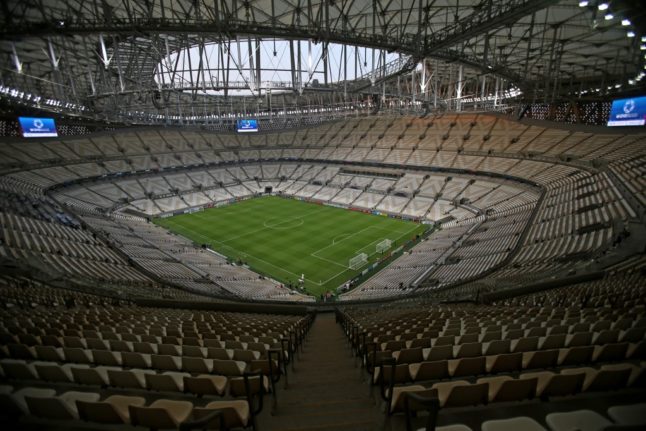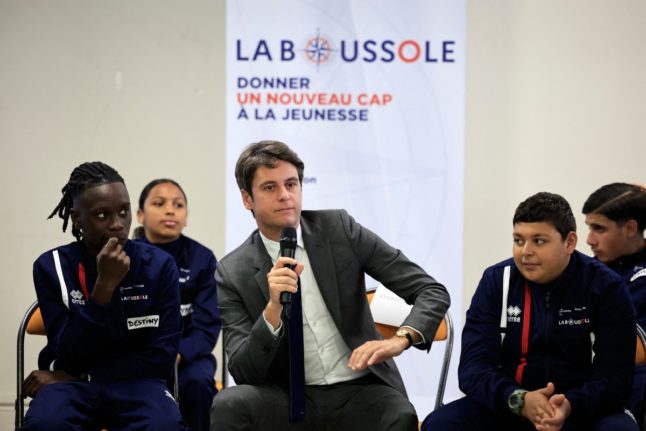Weeks ahead the 2022 World Cup in Qatar, authorities in several French cities – including Paris – have already announced that they will boycott the event by not showing any matches on big screens (écran géant) or by creating fan zones, although bars and restaurants can still decide to screen matches.
Paris
France’s capital will not show matches from the World Cup in Qatar on giant screens, partly due to the “conditions” of the tournament, the city’s current deputy mayor for sports, Pierre Rabadan, told AFP on Monday.
Rabadan told AFP: “For us, there was no question of setting up big screen areas for several reasons: the first is the conditions in which this World Cup has been organised, both in terms of the environment and the social aspect. The second is the fact that it takes place in December.”
Bordeaux
Bordeaux’s mayor, a member of the Green Party, Pierre Humic, said on RMC (the French sports radio channel), that his city will also boycott the event by not installing any big screens. According to BFMTV, Humic planned to finalise his decision on Tuesday, during the city council meeting.
“We, the mayors, are currently concerned about broadcasting [the World Cup] on big screens in our cities. And it is our role to say that we do not want to be complicit in this energy waste,” Humic said on RMC.
Humic clarified that bars and restaurants could nevertheless broadcast the competition throughout the city at their own discretion. “I am not the director of conscience of Bordeaux,” he said.
“Everyone can respond as they wish. And far be it from me to impose my point of view on anyone. I am very respectful of individual freedoms.”
Lille
In the north of France, giant screens will remain turned off too. On Friday night, Lille’s city council formalised their decision not screen matches.
Mayor, Martine Aubry, tweeted her disapproval for the World Cup in Qatar, calling it “nonsense in terms of human rights, the environment and sport.”
A l'unanimité, le Conseil Municipal de #Lille a voté ce soir une déclaration désapprouvant la tenue de la Coupe du Monde de football au Qatar, qui est un non-sens au regard des droits humains, de l'environnement et du sport. Nous ne diffuserons aucun match sur écran géant.
— Martine Aubry (@MartineAubry) September 30, 2022
Additionally, the deputy Mayor, Arnaud Deslandes, said that the city will not create fanfare around an “event we refuse to support.”
However, at least a dozen bars in the city plan to broadcast the World Cup, though some told Franceinfo they will abstain.
READ MORE: ‘Allez putain!’: French phrases you need for watching the 2022 World Cup
One such bar is “O’Mulligan’s,” run by manager Justine Chambrillion.
Chambrillon told Franceinfo that the establishment welcomed over 800 customers during the 2018 World Cup, but this year they will not air it. The manager said it would be “absurd to rejoice in a sporting event that has caused thousands of deaths, that flouts human rights, and that has a completely disastrous ecological impact.”
Marseille
The Mediterranean city announced previously that it would not set up fanzones or giant screens prior to the finals, at which time they would only do so if the French team qualified. However, on October 3rd, local authorities said they have decided not to install any giant screens, regardless of the performance of the French team.
“The City of Marseille is committed to an ever fairer and more inclusive practice of sport. Marseille, which is strongly attached to the values of sharing and solidarity in sport and committed to building a greener city, cannot contribute to the promotion of the 2022 World Cup in Qatar,” the city said in a statement.
Strasbourg
Strasbourg’s mayor, Jeanne Barseghian, a member of the Green Party said during the city council meeting on Monday that “there are no plans for public screenings concerning the World Cup, because the City of Strasbourg will not broadcast the 2022 World Cup organised by Qatar.”
Elaborating on the decision, Barseghian told France 3 Alsace that: “It is impossible for us not to listen to the numerous alerts from NGOs denouncing the abuse and exploitation of immigrant workers. Strasbourg, the European capital and seat of the European Court of Human Rights, cannot decently support these abuses.”
Several other French cities and smaller towns, including Nancy, Reims and Rodez, have also decided on a boycott, with others likely to follow.
Human rights
The issue of human rights is central to many cities’ and individuals’ choices to boycott the Qatar World Cup, namely the treatment of migrant workers who were hired to build much of its infrastructure.
NGOs such as Human Rights Watch allege the “Kafala system” – defined by the Council on Foreign Relations as a sponsorship programme “that gives private citizens and companies in Jordan, Lebanon, and most Arab Gulf countries almost total control over migrant workers’ employment and immigration status” – leaves migrants vulnerable to abuse and mistreatment.
Specifically, many have expressed concern over the number of workers who have died or been injured in the construction of the World Cup. As of 2021, at least 6,500 migrant workers involved in the construction of the World Cup had died in Qatar, according to The Guardian after consulting data from the embassies of India, Pakistan, Nepal, Bangladesh and Sri Lanka.
However, Human Rights Watch reported that the true numbers are likely higher, “because there are a dozen more countries sending migrant workers to Qatar, including the Philippines, Kenya, and Ghana.”
Qatari authorities have said that there have only been three deaths at World Cup stadiums in work accidents.
Others have expressed concern regarding the rights of LGBT people attending the tournament, as homosexuality is illegal in Qatar.
After one high profile athlete came out, he said he would like to play in the World Cup, but was worried about his safety in doing so.
In response to questioning about the safety of footballers – and fans – the head of the “social and human legacy initiative” for the tournament, Nasser Al-Khori, said to SBS news that the country is “modernising, but in our own sort of way, sticking to our identity, our culture, our roots.” He added “We welcome everybody, but we also expect and want people to respect our culture” when asked about visitors and players from the LGBT community, a comment that has been met with backlash from rights groups.
Environmental impacts
Several French public officials have discussed their dissatisfaction over the environmental impacts of the 2022 World Cup.
Dezeen reported that the tournament will generate “more emissions than the whole country of Iceland emits in a year.”
According to a report published by organisers of the FIFA 2022 World Cup, the event will emit 3.6 million tonnes of carbon dioxide.
The tournament will run from November 20th to December 18th.



 Please whitelist us to continue reading.
Please whitelist us to continue reading.
Member comments